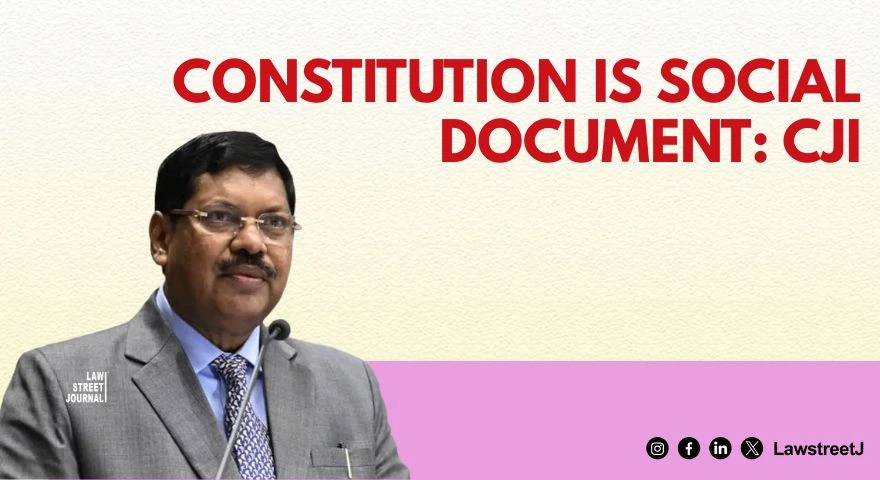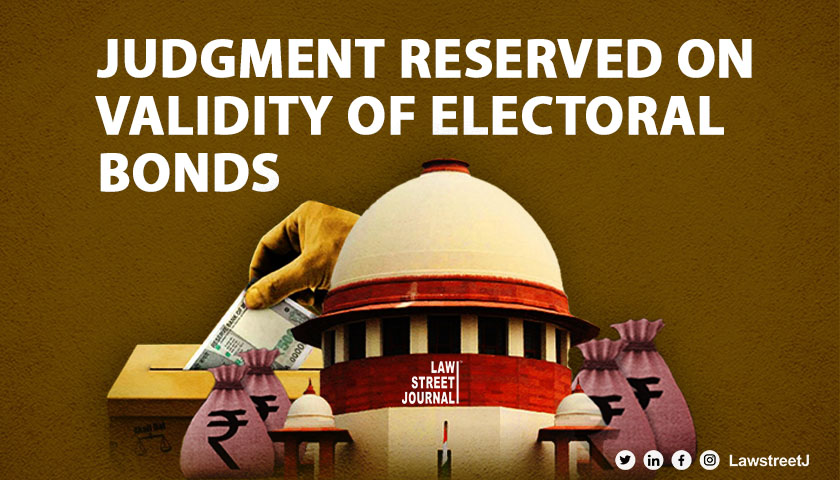NEW DELHI: Chief Justice of India B R Gavai said the true beauty of Indian democracy lies in the fact that even as we celebrated 75 years of the Constitution, we continue to reflect, renew, and reimagine how to deepen and expand the meaning of representation.
He pointed out, just last year, Parliament passed a constitutional amendment to provide political reservations for women in Parliament and state legislatures. In the same year, the Supreme Court also upheld the principle of sub-classification within quotas for Scheduled Castes. This was not to question the relevance or success of reservations, but to ensure that the most marginalized within marginalized groups receive their fair share.
The CJI was speaking at the Oxford Union on the theme 'From Representation to Realisation: Embodying the Constitution's Promise' on Tuesday.
He said the Constitution is a social document, one that does not avert its gaze from the brutal truths of caste, poverty, exclusion, and injustice.
He said it does not pretend that all are equal in a land scarred by deep inequality. Instead, it dares to intervene, to rewrite the script, to recalibrate power, and to restore dignity.
"The Constitution of India carries within it the heartbeat of those who were never meant to be heard, and the vision of a country where equality is not just promised, but pursued. It compels the State not only to protect rights but to actively uplift, to affirm, to repair," Justice Gavai emphasised.
He said many decades ago, millions of citizens of India were called “untouchables”, they were told they were impure.
“But here we are today— where a person belonging to those very people is speaking openly, as the holder of the highest office in the judiciary of the country,” the CJI said.
Justice Gavai is the only the second Dalit to hold the highest judicial office in India.
The CJI said after the Constitution came into force, the idea of representation began to take concrete shape through the implementation of quotas in political offices, government employment, and later, in educational institutions.
“These constitutional guarantees reflect a vision of substantive equality, which goes beyond formal equality and requires the state to take positive action to correct historical disadvantages,” the CJI said.
The CJI said the Supreme Court of India, in landmark judgments such as State of Kerala Vs N M Thomas (1976) and Indra Sawhney Vs Union of India (1992), affirmed that affirmative action is a facet of equality under the Constitution.
“These decisions clarified that representation and equality are not opposing ideals. Rather, they reinforce each other. Over time, a range of mechanisms have been employed to give effect to the idea of representation: reservations in promotions, preferential treatment in appointments, age and eligibility relaxations, and scholarships, all designed to break the cycle of exclusion,” he said.
The CJI said the idea of representation has also been progressively extended to various vulnerable groups. He said that in the NALSA Vs Union of India (2014) judgment, the apex court recognized the rights of the transgender community and directed that they be provided with reservations in public employment, acknowledging the need for affirmative action to ensure their inclusion in state structures.
“In several other decisions, the Supreme Court has also emphasized the need for reasonable accommodation for persons with disabilities, ensuring their meaningful participation in society and their integration into governance and institutional frameworks”, he said.
Talking about the legacy of Dr B R Ambedkar, the CJI said: “The idea of representation found its most powerful and enduring expression in the vision of Dr. B.R. Ambedkar, a statesman, scholar, jurist, and social revolutionary who rose from the most oppressed strata of Indian society”.
“In an unequal society, he believed, democracy cannot survive unless power is also divided among communities, not just among institutions. Representation, therefore, was a mechanism of redistributing power, not only between the legislature, executive, and judiciary, but among social groups that had been denied a share for centuries," he said.
The CJI said India's Constitution was not merely a legal framework but a social and moral document crafted amidst deep inequality. He pointed out that its drafters included representatives from some of the most marginalised communities in India -- Dalits, Adivasis, women, religious minorities, persons with disabilities, and even those formerly labelled "criminal tribes".








![Supreme Court upholds abrogation of Article 370, mandates elections in J&K by September 2024 [Read Judgment]](/secure/uploads/2023/12/lj_9189_Historic_verdict.jpg)
![Maratha reservation: Supreme Court will hear curative plea on Jan 24, 2024 [Read Order]](/secure/uploads/2023/12/lj_6671_Maratha_quota_row.jpg)
![Supreme Court Collegium approves new Chief Justices for five key High Courts in India [Read Recommendations]](/secure/uploads/2023/12/lj_8000_380d1135-6f3a-4988-a00a-4d5cd5901815.jpg)




